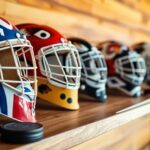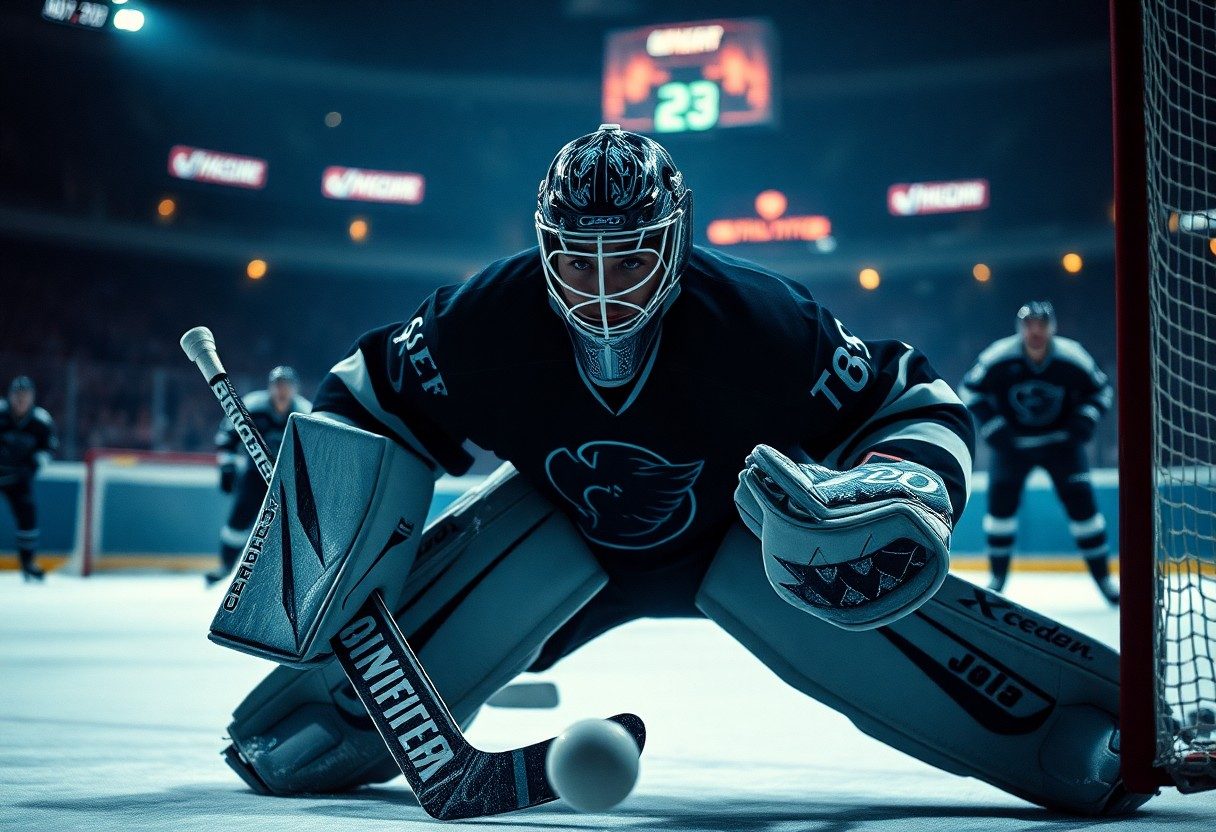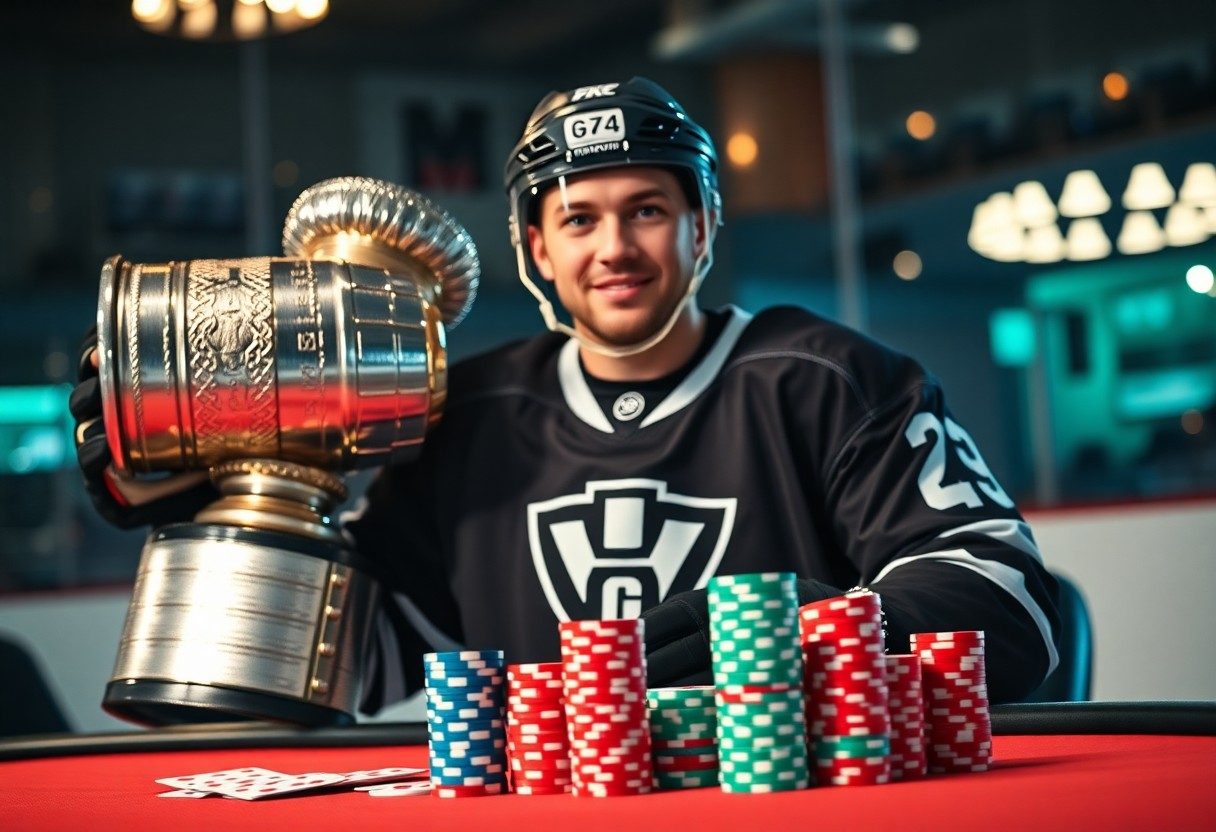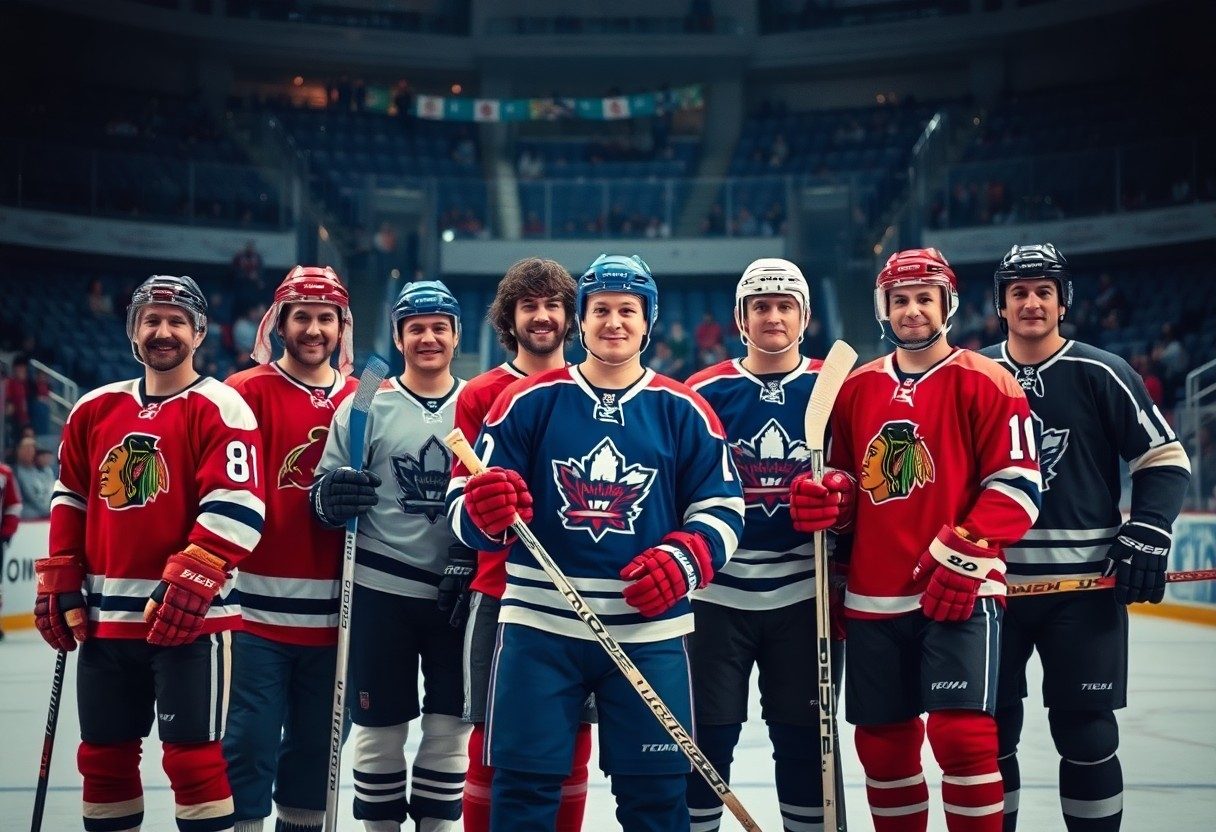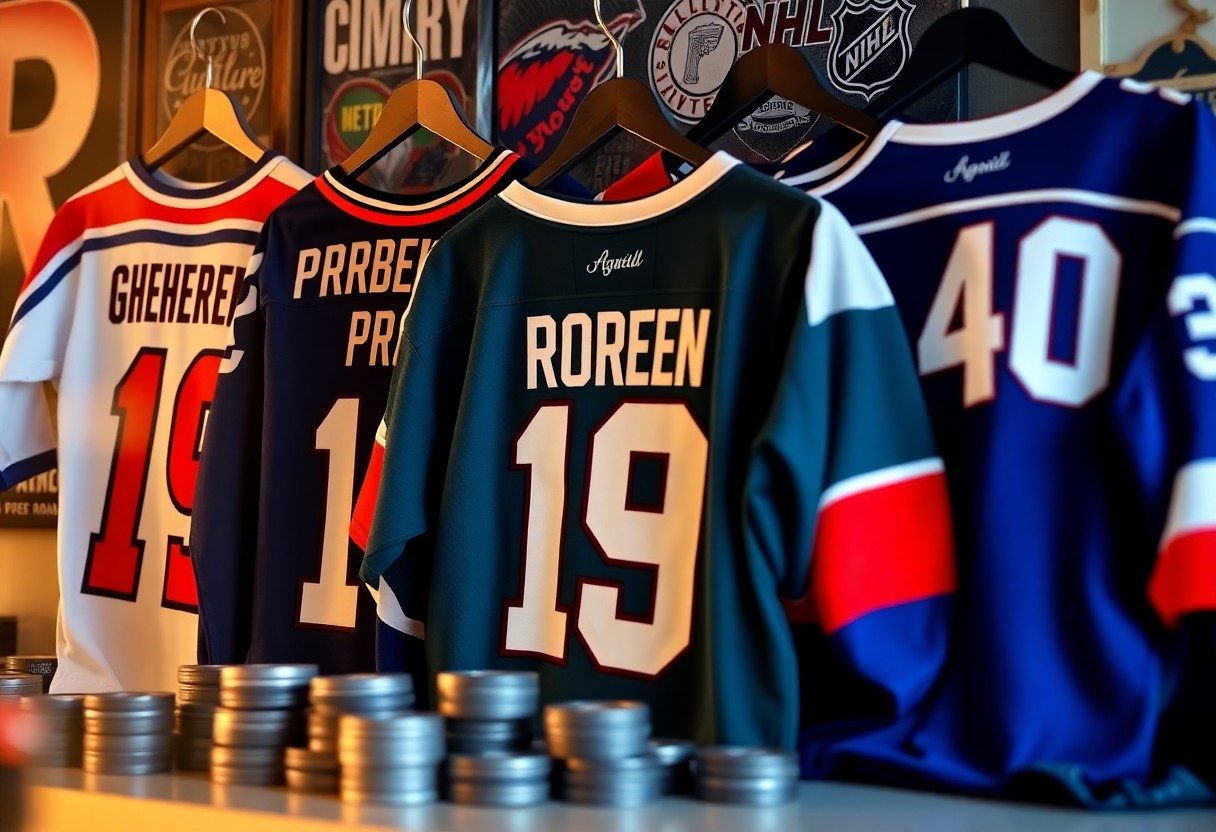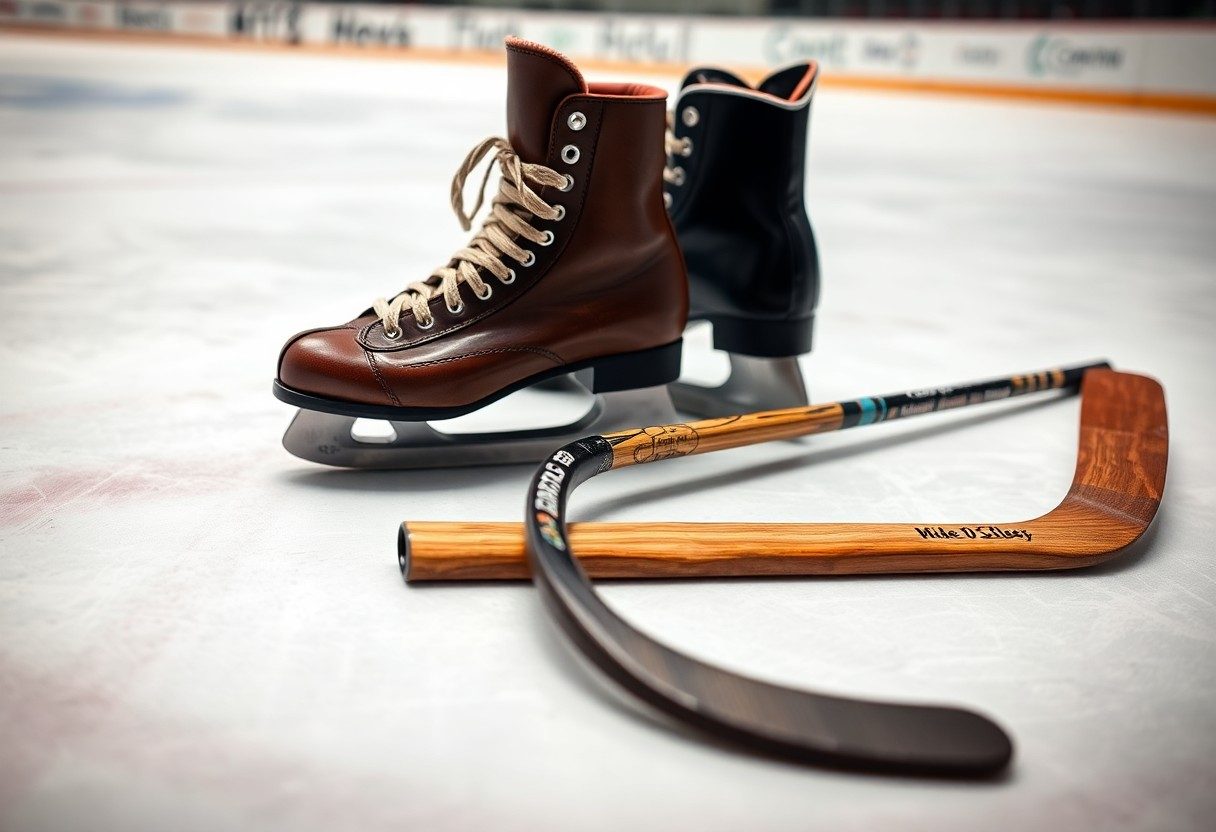It’s necessary to understand the unique challenges a hockey goalie faces on the ice. You operate under immense pressure, where every shot could determine the game’s outcome. Your reflexes must be razor-sharp, as you react in split seconds to unpredictable plays. Moreover, the mental toughness required to remain focused amidst the chaos is unmatched. This post probes into the psychological and physical aspects of being a goalie, offering insights that will enhance your appreciation for the position and the skills needed to excel.
The Role of Pressure in Goaltending
Your journey as a goalie is heavily defined by the pressure you encounter on the ice. Every save can mean the difference between victory and defeat, making it important to manage this constant psychological weight. Mastering pressure involves both preparation and mental fortitude, allowing you to perform at your best, even in the most intense situations.
Understanding Game Situations
An awareness of game situations is key to successfully handling pressure as a goaltender. You must assess factors such as the opposing team’s momentum, the score, and the time remaining. By recognizing these dynamics, you can adjust your mindset and focus your energy on making the critical saves when it matters most.
Developing Coping Mechanisms
Behind every successful goalie lies a set of coping mechanisms tailored to manage pressure. These strategies help you maintain composure during high-stress moments, allowing your skills to shine through despite external distractions or noise.
Coping strategies can range from visualization techniques to focused breathing exercises. You might visualize successful saves before stepping on the ice, which helps solidify your confidence. Incorporating mindfulness practices into your routine can further ground you during chaotic moments in a game. Over time, these methods not only enhance your performance but also reinforce your mental resilience, empowering you to handle pressure in a manner that translates to consistent success on the ice.
The Importance of Reflexes
While playing as a goalie, your reflexes become an crucial part of your performance. The ability to react swiftly to unpredictable situations on the ice can be the difference between a save and a goal. Your body must respond instinctively to fast-moving pucks and rapid player movements, highlighting the significance of honing your reflexes to enhance your effectiveness in the net.
Quick Decision Making
For a goalie, split-second decisions are everyday occurrences. You must constantly assess the situation, anticipating where the puck will go and deciding how best to position yourself for a potential save. Each moment is a test of your ability to weigh options and execute the correct action, often with very little time to think.
Physical Training for Reaction Time
Time spent training your physical responses is vital for improving your overall performance as a goalie. Daily drills targeting your agility, coordination, and visual tracking can significantly enhance your reaction time, allowing you to respond quickly to shots and assists. Practicing these tuned movements will help you stay sharp during games.
Making reaction time training a priority in your routine is crucial for developing your capabilities between the posts. Incorporate exercises like plyometrics, fast footwork drills, and reaction ball training into your workouts, and you’ll see improvements in your ability to respond to shots. Simulated game situations during practice can also sharpen your instincts, reinforcing the reactions necessary for effective goaltending. Embrace this focus on physical training and you’ll elevate your game to new heights.
Mental Toughness and Resilience
Some might say that mental toughness is the backbone of a successful hockey goalie. In the face of relentless pressure, it’s crucial for you to cultivate resilience and the ability to bounce back from setbacks. Every missed save or tough game can be a test of your mental fortitude, and developing a strong mindset is crucial to navigating the highs and lows of the sport.
Building a Strong Mindset
Beside your physical preparation, you must prioritize mental conditioning to enhance your performance. Establishing routines, setting achievable goals, and practicing visualization techniques can help fortify your mindset. Consistently engaging in positive self-talk and focusing on the present moment will enable you to remain composed during the high-stakes nature of the game.
Strategies for Overcoming Adversity
Among the challenges you face, adversity is inevitable in the life of a goalie. Developing a game plan for handling failures and setbacks will create a more resilient you. Seeking feedback, embracing constructive criticism, and reflecting on your performance can facilitate growth and improvement, allowing you to learn from each experience rather than become deterred by it.
Due to the unpredictable nature of hockey, you will encounter numerous obstacles throughout your career. It’s vital to turn these challenges into opportunities for growth by remaining focused on your goals. Engaging in mindfulness practices can help you maintain clarity, while fostering a positive attitude toward mistakes transforms them into invaluable lessons. Bear in mind, your ability to face adversity head-on will define your journey and influence your success as a goalie.
Psychological Aspects of Goalie Training
Despite the physical demands of playing goalie, the psychological aspects are what often set top performers apart. Mental training allows you to develop the resilience needed to handle high-pressure situations on the ice, maintaining focus amid chaos. Incorporating psychological strategies into your training regimen not only sharpens your game awareness but also enhances your overall performance when it matters most.
Visualization Techniques
Along with physical training, visualization techniques play an necessary role in a goalie’s mental preparation. By creating a mental image of successful saves and game scenarios, you can condition your mind and body to react instinctively during real games. Practicing these techniques consistently allows you to build confidence and familiarity, transforming anxiety into focused energy when you step onto the ice.
Mindfulness and Focus
Alongside visualization, mindfulness and focus are vital components of your mental training. Practicing mindfulness helps you cultivate an awareness of the present moment, enabling you to block out distractions and maintain clarity during play. This heightened sense of focus allows you to read the game more effectively, anticipating the actions of opposing players and staying one step ahead.
In fact, incorporating mindfulness into your routine can significantly improve your performance. Engaging in techniques such as breathing exercises or meditation helps ground you, alleviating stress and anxiety that often accompany competitive play. By honing your focus during training sessions, you’re creating a powerful mental environment that promotes sharp reflexes, quick decisions, and ultimately better saves when faced with the high stakes of a game.
Team Dynamics and Communication
Unlike other positions, your role as a goalie depends heavily on effective team dynamics and communication. You must always be in sync with your teammates, as seamless communication can significantly improve on-ice performance. Understanding each player’s style, habits, and tendencies allows you to anticipate plays and react accordingly, fostering a sense of unity that is vital for success. Trust among your teammates enhances your performance and enables smoother transitions during the game.
Relationship with Defensemen
Team chemistry with your defensemen is vital for your effectiveness as a goalie. You need to establish a rapport that allows you to communicate effectively during games, which enhances your ability to direct plays and make quick decisions. Knowing their positioning and understanding how they defend against opponents will enable you to anticipate potential scoring opportunities and adjust your positioning to optimize your saves.
Interaction with Coaches
Defensemen play a key role in your communication with coaches, as they often relay important information and strategies that you need to be aware of during a game. Their insights can help you understand the opposing team’s strengths and weaknesses. You should actively engage with your coach to discuss game strategies, which can also enhance your overall performance in the net. Collaboration with your coach will allow you to fine-tune your techniques and stay focused, ensuring that you remain a reliable last line of defense.
Even small adjustments or feedback from coaches can significantly influence your game performance. Engaging in pre-game strategy discussions and post-game analyses gives you valuable insights into your strengths and areas for improvement. Recognizing patterns and suggestions from your coaches can enhance your on-ice decision-making. This dialogue not only builds your tactical awareness but also reinforces your role within the team’s framework, ultimately improving overall performance and results.
Analyzing the Opponent
Now, understanding your opponent’s tendencies is vital for your success as a goalie. You must evaluate their strengths and weaknesses, tailoring your approach to anticipate their next move. This analysis not only prepares you for individual players but also helps in understanding the collective pattern of their team. Being aware of their play style gives you the edge needed to make those game-saving stops.
Reading Players and Patterns
On the ice, every player has unique traits that influence their decision-making. You need to observe how they handle the puck, their shooting angles, and the way they position themselves in relation to you. By recognizing these patterns, you can better predict their actions and position yourself accordingly.
Adjusting Strategies
Across the game, adaptability is key for a goalie. You should consistently assess your positioning and strategy based on how the opposing players are performing. As you gather more information about their tactics, it’s imperative to refine your approach to stay one step ahead.
Further, fine-tuning your strategies involves not just reacting to players’ styles but also anticipating shifts in their gameplay. If you notice a player preferring a specific shot or angle, adjust your stance and positioning preemptively. This adaptability not only enhances your performance but can instill doubt in your opponents, giving you a psychological edge that complements your on-ice skills.
Summing up
With this in mind, understanding the inner workings of a hockey goalie illuminates the unique pressures and mental fortitude you must cultivate. Your reflexes are not just about quick movements; they involve anticipation and situational awareness. Mental toughness is your backbone, allowing you to bounce back from setbacks and maintain focus amidst chaos. By embracing these elements, you not only enhance your performance on the ice but also sharpen your overall approach to challenges, both in hockey and beyond.




